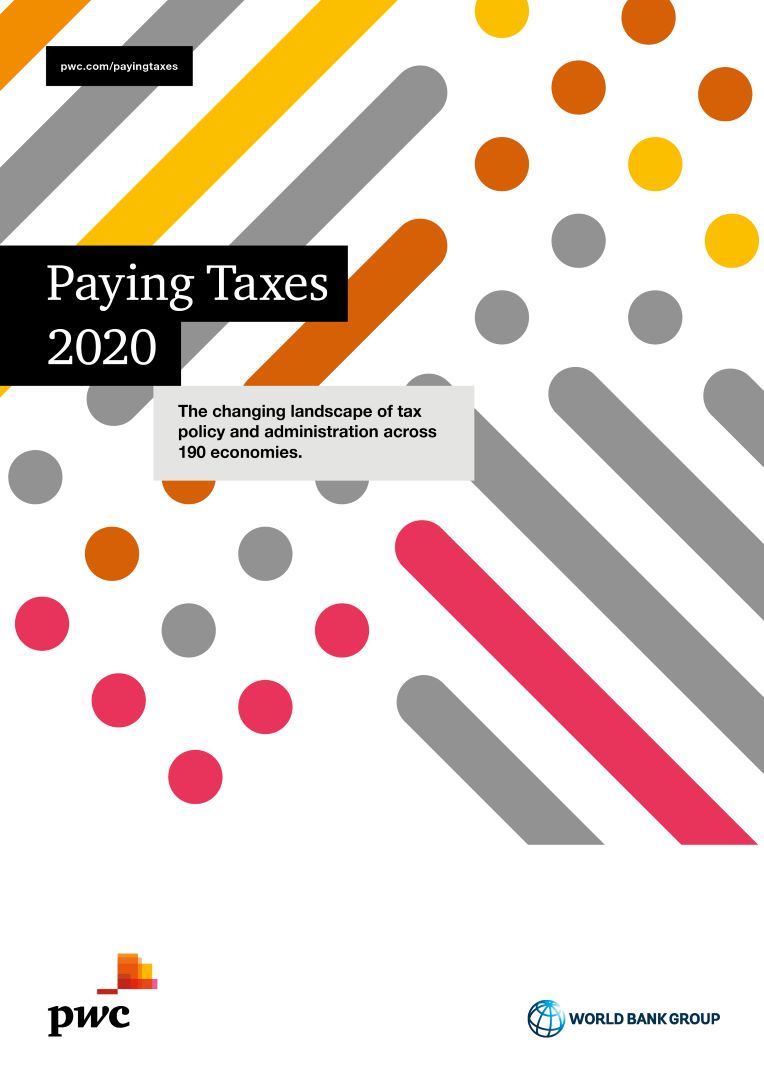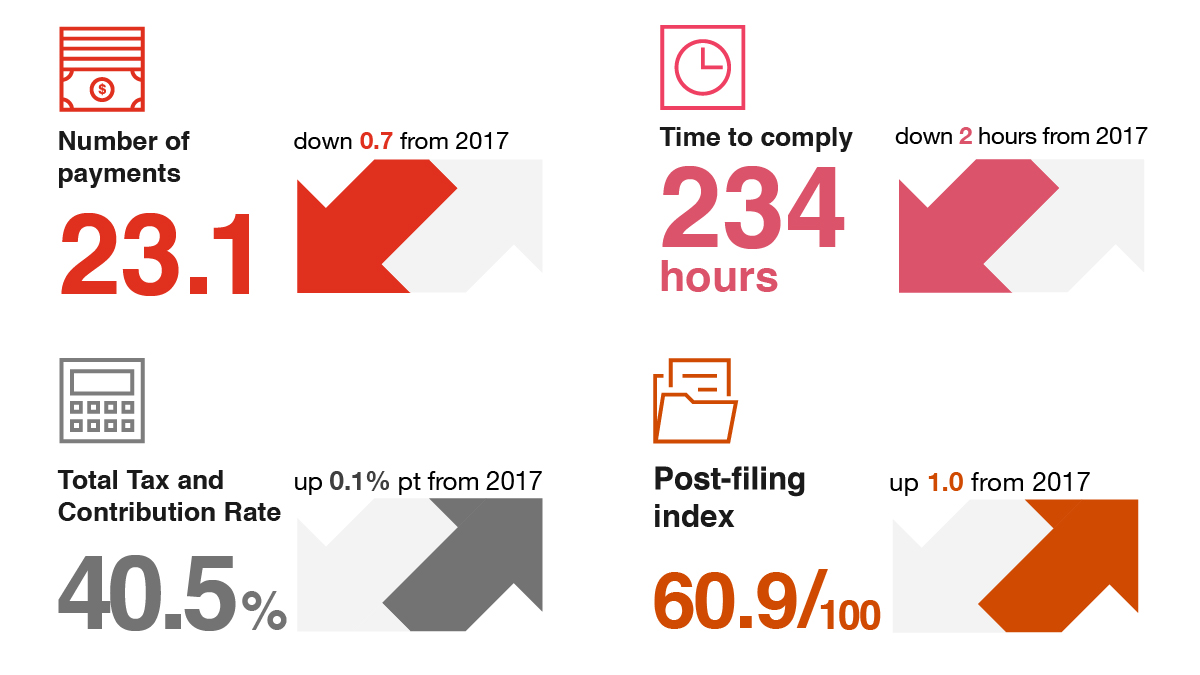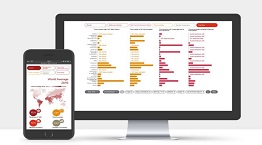Overview
Paying Taxes 2020 a joint annual publication by the World Bank Group and PwC looks at tax regimes in 190 economies and provides an unrivalled global database. This year marks the fourteen year of the publication. The report is based on the Paying Taxes indicator and includes analysis and commentary by the World Bank and PwC. Paying Taxes has historically measured the Total Tax and Contribution Rate (the cost of all taxes borne, as a % of commercial profit), the time needed to comply with the major taxes (profit taxes, labour taxes and mandatory contributions, and consumption taxes), and the number of tax payments. This is the fourth year the study includes the post-filing index that measures the process of claiming a value added tax (VAT) refund and correcting a corporate income tax return. These two processes are based on four components—time to comply with VAT refund (hours), time to obtain VAT refund (weeks), time to comply with a corporate income tax correction (hours) and time to complete a corporate income tax correction (weeks). The overall Paying Taxes score is based on the scores of the four components.
The global average results for the case study company are almost unchanged compared to last year, yet 32 economies recorded major tax reforms. The most popular reform around the world continue to be the introduction or enhancement of existing online systems for tax declarations and tax payments. The report finds that the time to comply declined in the past year by 2 hours to 234 hours. At the same time, the number of the payments decreased slightly (down 0.7 from 2017). The global average post-filing index score increased by one point, from 59.9 in 2017 to 60.9 in 2018. The global average of the Total Tax and Contribution Rate (TTCR) increased by 0.1 percentage points to 40.5% in 2018.
Main Findings
- On average in 2018, it takes the case study company 234 hours to comply with its taxes, it makes 23.1 payments and has an average Total Tax and Contribution Rate of 40.5%. It scores 60.9 points on the post-filing index.
- The global average results for the case study company are almost unchanged compared to last year. The time needed to comply have decreased by 2 hours compared to last year while the number of tax payments decreased by 0.7 payments.
- In 2018, the profit tax component of TTCR fell in 54 economies and increased in 31, while labor tax component of TTCR increased in 46 economies and decreased in 20.
- In 2018, 32 reforms that made it easier or less costly to pay taxes were implemented. The most popular reform continues to be the introduction or enhancement of online systems for filing and paying taxes. Côte d’Ivoire made the greatest advances in tax payment systems in 2018.
- Since 2004, the average time to comply has fallen on average by 87 hours and the average number of payments by 11 – both driven by technology.
- Since 2014, the global average post-filing index score increased by two points, from 58.9 to 60.9 in 2018.
- In 2018, it took our case study company 18.2 hours to comply with a VAT refund claim and 27.3 weeks to obtain the refund. The average time to comply with a CIT correction was 14.6 hours, and for those 76 economies where there would be a review in more than 25% of cases, the review lasted on average 27.0 weeks.
- The global average time to complete a CIT correction was 25.5 weeks in 2018. This includes five economies that would not have a review but would have to wait a short time before making the additional tax payment.
- Armenia and Egypt have recently made VAT refunds available to the case study company. Turkey has exempted capital purchases from VAT.
- The use of electronic tax filing and payment systems has risen sharply since 2004, when only 43 economies measured by Doing Business had an online system for filing and paying taxes. In 2018, this number has more than doubled (to 106) as economies have shifted from filing taxes manually and paying them in person to filing tax returns electronically and paying taxes online.
- Tax returns that are prepopulated by the tax administration reduce preparation time for taxpayers. Most OECD high-income economies — which have annual compliance time of 159 hours on average — provide prepopulated tax returns. In contrast, nearly one-third of sub-Saharan African economies do not use prepopulated tax returns. As of Doing Business 2020; the region’s average compliance time is 281 hours.
- E-invoices are gaining popularity globally, with a wide implementation of mandatory e-invoices for value-added tax (VAT). Economies in the OECD high-income group are at the forefront of invoice digitization, with almost all countries requiring companies to use electronic invoices.
- Technology is changing how taxes are administered. More and more companies are using tax software, and more and more tax authorities are creating easier-to-use online portals that can simplify tax compliance.



